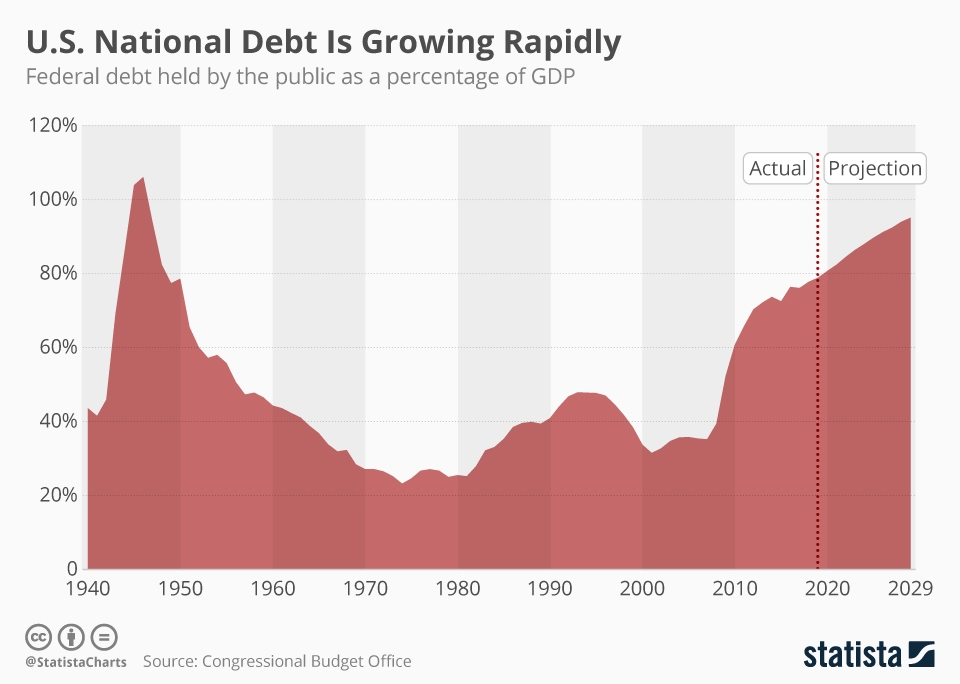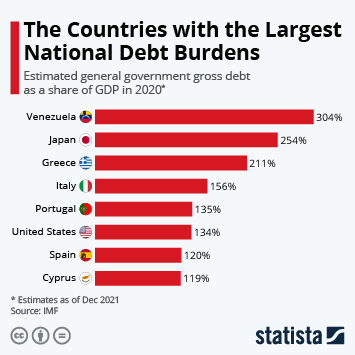A report released last week by the bipartisan Congressional Budget Office (CBO) projected that the federal budget deficit will reach $960 billion for the 2019 fiscal year before climbing to $1 trillion in 2020. That's higher than the CBO's previous estimates of $896 billion for 2019 and $892 billion for 2020. The findings were accompanied by warnings that the Trump administration's trade war is impacting the American economy and leading to cuts in household income.
Debt held by the public as a share of GDP is also projected to rise significantly over the coming decade, increasing from 79 percent currently to 95 percent by 2029 - its highest level since just after World War II. Debt held by the public is all debt owed by the federal government to those outside it such as businesses, banks, foreign governments and individuals.
CBO Director Phillip Swagel said that "the nation's fiscal outlook is challenging". He added that "federal debt, which is already high by historical standards, is on an unsustainable course, projected to rise even higher after 2020 because of the aging of the population, growth in per capita spending on health care and rising interest costs". Debt was a key issue for President Trump on the campaign trail before he took office and he voewed to eliminate U.S. national debt over a period of eight years in 2016. However, the deficit has continued to expand, mainly due to a $1.5 trillion tax cut bill and spending packages that have not been balanced with spending cuts.





















